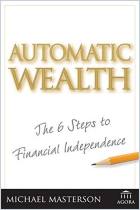Melden Sie sich bei getAbstract an, um die Zusammenfassung zu erhalten.

Melden Sie sich bei getAbstract an, um die Zusammenfassung zu erhalten.
Beth Kobliner
Get a Financial Life
Personal Finance in your Twenties and Thirties
Fireside, 2009
Was ist drin?
No matter how early it is in your career, you`re never too young to begin saving and investing for the future.
Recommendation
Books like Beth Kobliner’s have to earn their place on your bookshelf. After all, these days plenty of personal finance advice is available for free on the Internet. That said, this book is a wise investment for early-career professionals who would like advice about getting out of debt. Although its guidance is solid-if-predictable, it is well-researched and straightforwardly written. Kobliner provides an authoritative "further reading" list for those who want to delve deeper into how to get their finances on an even keel. This book does not promise to make you rich overnight, and it doesn’t exactly qualify as a page-turner, but it lends a helping hand. getAbstract recommends it to young people whose financial life is just a bit too exciting.
Summary
About the Author
Beth Kobliner was a staff writer at Money magazine and a contributor to The New York Times. She frequently appears on CNN, MSNBC and other news programs. She began her career researching and writing columns for personal finance guru Sylvia Porter.



















Comment on this summary